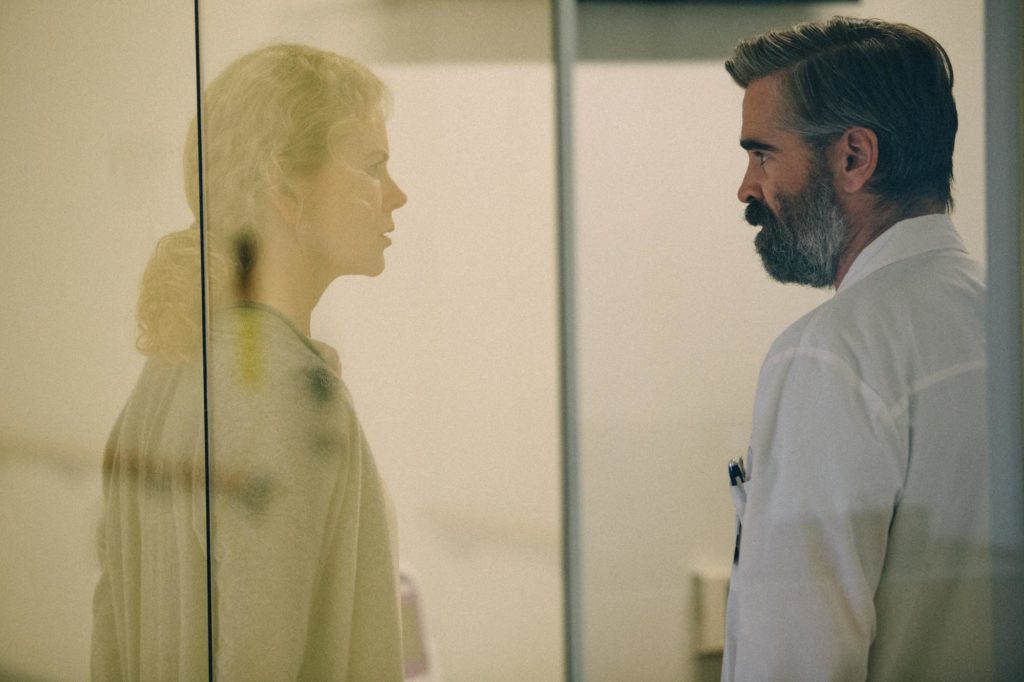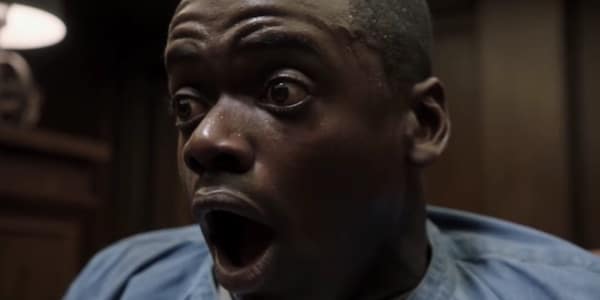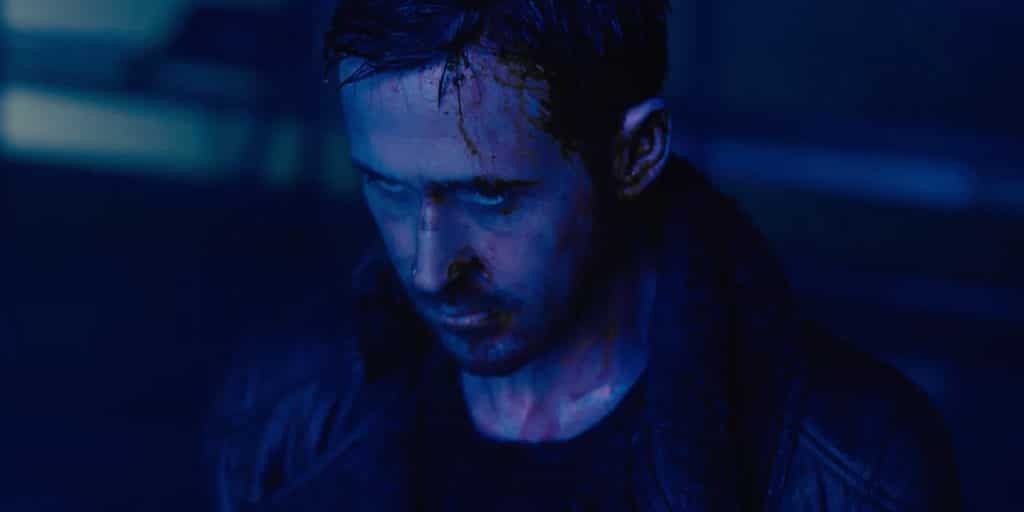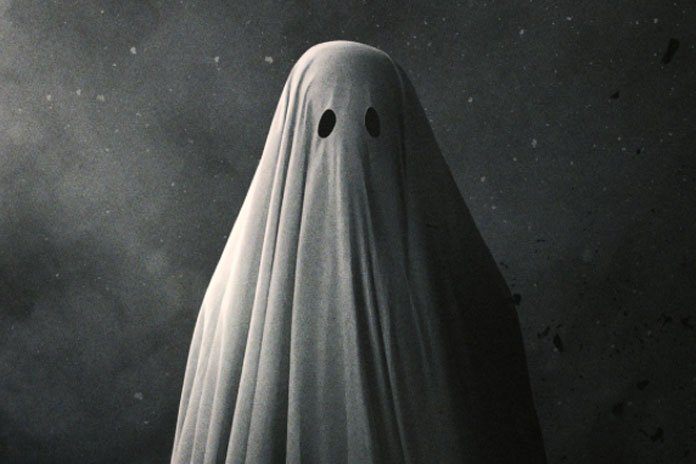 I’ll spare you the full preamble where I say how fast the year has flown, or that I haven’t been to the cinema as much as I’d have hoped, or that [current year] wasn’t all that great for films; in actual fact, I’ve seen some excellent films this year, in some cases from entirely unanticipated directions. On these lines, I never expected to enjoy a film so much that is based on Greek myth, blending horrible realism with farce and potentially supernatural elements. The Killing of a Sacred Deer is my first outing with director Yorgos Lanthimos and it’s certainly been memorable; rarely does a film get under my skin quite so much. From the outset, the affluent white collar Murphy family reeks of the unseemly and the unhealthy; Nicole Kidman playing with necrophile fantasies to assuage her jaded husband’s tastes shows us that, in no uncertain terms. And then, the strange relationship which Steven Murphy (Colin Farrell) has established with the son of a deceased patient, the sublimely creepy Martin (Barry Keoghan), throws one more element of creeping chaos into the mix. As the Murphys begin to sicken under his influence, Steven has to make a decision. Every line of this film feels as though it’s imbued with some sort of malign power, and medicalisation as a rogue force runs through the film in abundance. It’s an unusual, bold and disturbing vision of family breakdown. You can check out my full review here.
I’ll spare you the full preamble where I say how fast the year has flown, or that I haven’t been to the cinema as much as I’d have hoped, or that [current year] wasn’t all that great for films; in actual fact, I’ve seen some excellent films this year, in some cases from entirely unanticipated directions. On these lines, I never expected to enjoy a film so much that is based on Greek myth, blending horrible realism with farce and potentially supernatural elements. The Killing of a Sacred Deer is my first outing with director Yorgos Lanthimos and it’s certainly been memorable; rarely does a film get under my skin quite so much. From the outset, the affluent white collar Murphy family reeks of the unseemly and the unhealthy; Nicole Kidman playing with necrophile fantasies to assuage her jaded husband’s tastes shows us that, in no uncertain terms. And then, the strange relationship which Steven Murphy (Colin Farrell) has established with the son of a deceased patient, the sublimely creepy Martin (Barry Keoghan), throws one more element of creeping chaos into the mix. As the Murphys begin to sicken under his influence, Steven has to make a decision. Every line of this film feels as though it’s imbued with some sort of malign power, and medicalisation as a rogue force runs through the film in abundance. It’s an unusual, bold and disturbing vision of family breakdown. You can check out my full review here.
 In one of those cases where I’ll just be adding my voice to the choir, Get Out is another of my picks of this year, and it actually has some similarities to The Killing of a Sacred Deer. Director Jordan Peele caused something of a stir on his Twitter feed recently when he declared that Get Out ‘is a documentary’. It isn’t, of course, if we’re to take him at face value at least, but it’s a seamless blend of social commentary and supernaturalism; the fantastic elements of the film lead it into conflict with realism, but in so doing, they underline a few distinctly uncomfortable truths about race in America in a way which only fantasy can really achieve. Daniel Kaluuya does a superb job as Chris, a black guy who just happens to be in a relationship with a white woman, Rose (Allison Williams). They’re about to visit her parents for the first time and he’s naturally a little apprehensive as to whether his race is going to be an issue. At first, the issue seems to be that they’re tripping over themselves to prove that it isn’t an issue whatsoever, which leads to some incredibly uncomfortable cinema as Rose’s dad insists he would have voted for Obama a third time, if he could. But for all their achingly liberal pretensions, the Armitages have black servants – black servants who behave decidedly oddly. As Chris finds out what’s going on, the horror escalates in a series of quite subtle but effective ways. Raising lofty and complex issues such as comparative power in society, though interweaving moments of comedy for some much-needed light relief, Get Out is an innovative and, I’d say, an important film, whose reputation will surely build and build. Me and Ben discussed our take on the film at the time we first saw it; you can take a look at that here.
In one of those cases where I’ll just be adding my voice to the choir, Get Out is another of my picks of this year, and it actually has some similarities to The Killing of a Sacred Deer. Director Jordan Peele caused something of a stir on his Twitter feed recently when he declared that Get Out ‘is a documentary’. It isn’t, of course, if we’re to take him at face value at least, but it’s a seamless blend of social commentary and supernaturalism; the fantastic elements of the film lead it into conflict with realism, but in so doing, they underline a few distinctly uncomfortable truths about race in America in a way which only fantasy can really achieve. Daniel Kaluuya does a superb job as Chris, a black guy who just happens to be in a relationship with a white woman, Rose (Allison Williams). They’re about to visit her parents for the first time and he’s naturally a little apprehensive as to whether his race is going to be an issue. At first, the issue seems to be that they’re tripping over themselves to prove that it isn’t an issue whatsoever, which leads to some incredibly uncomfortable cinema as Rose’s dad insists he would have voted for Obama a third time, if he could. But for all their achingly liberal pretensions, the Armitages have black servants – black servants who behave decidedly oddly. As Chris finds out what’s going on, the horror escalates in a series of quite subtle but effective ways. Raising lofty and complex issues such as comparative power in society, though interweaving moments of comedy for some much-needed light relief, Get Out is an innovative and, I’d say, an important film, whose reputation will surely build and build. Me and Ben discussed our take on the film at the time we first saw it; you can take a look at that here.
I’ve been a fan of directors Aaron Moorhead and Justin Benson since they cut a swathe through indie cinema with Resolution, and I’ve enjoyed everything they’ve done since. These guys are ambitious enough to develop their own mythologies (see: Spring) and they’re not afraid to subvert audience expectations either: I had no idea what to expect from their newest film The Endless, but yet again, it’s a film which I found genuinely gripping and far-reaching. In it, the two directors also take the starring roles, as two brothers who escaped a religious cult in the past. Their lives as ‘free’ men are tough and unfulfilling, though, and when they receive a strange video from the group which seems to be them saying goodbye, Aaron decides he wants to go back. They visit, and things seem fine, actually, with no indications that the group are going anywhere. However, there are other forces at play here, and Justin and Aaron’s survival seems to depend on how successfully they can interpret these space/time-defying phenomena. Another very clever film from Moorhead and Benson, that these two aren’t currently rolling in money and getting to make whatever the hell they want next is a sad indication. The Endless is great, and answers some of the questions an earlier film of theirs asked. My full-length and spoiler-free review is here.
 Here’s another of those ‘preaching to the choir’ moments, as I’m going to mention a film which has met with ample acclaim, and rightly so. Well, saying that, there were a number of people who seemed to feel that Blade Runner 2049 was ‘boring’. Ordinarily I can manage other people’s opinions, but that seems a bizarre assessment in my book. Blade Runner 2049 was the sequel we’d dared to hope for. In a world of tawdry remakes and pissant prequels, this entrant into the Blade Runner universe was absolutely superb. It asked questions, but it didn’t drag the audience right up to the thing they were meant to notice; from the importance of having a name, to the impact of commodification, to selfhood, to what constitutes humanity – it was all in there, but refracted through an almost silent and self-possessed main character, and a dystopian world which veered between garish superficiality and the drabness of a meagre, lonely existence. The most human relationships in the film weren’t between humans at all; humans clung to what made them ‘special’, but their own special status made them behave like animals. As for the film’s gender politics – another sticking-point for some viewers (as ever, it seems) – firstly, the film is under no obligation to show us an idealised future, what with being a dystopia and all; more to the point, it seems to me that in an overcrowded, desperate, but ultimately technologically-advanced universe, sex would be just another commodity, just as it is in countless places around the world today. An uncomfortable truth perhaps, but just another facet of the film’s uncompromising investigation into how people behave (allowing for the fact, of course, that no one is ‘just’ a sex worker in the film). Blade Runner 2049 is also an aesthetic and an aural odyssey, with something humbling happening on every beat. I for one cannot wait to see this film again when it gets its general home release in January, and if you’ve missed out so far, then maybe Ben’s full review can sway you.
Here’s another of those ‘preaching to the choir’ moments, as I’m going to mention a film which has met with ample acclaim, and rightly so. Well, saying that, there were a number of people who seemed to feel that Blade Runner 2049 was ‘boring’. Ordinarily I can manage other people’s opinions, but that seems a bizarre assessment in my book. Blade Runner 2049 was the sequel we’d dared to hope for. In a world of tawdry remakes and pissant prequels, this entrant into the Blade Runner universe was absolutely superb. It asked questions, but it didn’t drag the audience right up to the thing they were meant to notice; from the importance of having a name, to the impact of commodification, to selfhood, to what constitutes humanity – it was all in there, but refracted through an almost silent and self-possessed main character, and a dystopian world which veered between garish superficiality and the drabness of a meagre, lonely existence. The most human relationships in the film weren’t between humans at all; humans clung to what made them ‘special’, but their own special status made them behave like animals. As for the film’s gender politics – another sticking-point for some viewers (as ever, it seems) – firstly, the film is under no obligation to show us an idealised future, what with being a dystopia and all; more to the point, it seems to me that in an overcrowded, desperate, but ultimately technologically-advanced universe, sex would be just another commodity, just as it is in countless places around the world today. An uncomfortable truth perhaps, but just another facet of the film’s uncompromising investigation into how people behave (allowing for the fact, of course, that no one is ‘just’ a sex worker in the film). Blade Runner 2049 is also an aesthetic and an aural odyssey, with something humbling happening on every beat. I for one cannot wait to see this film again when it gets its general home release in January, and if you’ve missed out so far, then maybe Ben’s full review can sway you.
 It’d be remiss of me to get to the end of this article without mentioning IT – probably the most straightforward horror film to make it into this year’s list, but an absolute romp from start to finish. No doubt this film was engineered in some respects to appeal to people of roughly my age who grew up during the 80s, but it’s a visual treat in any case, and there are good performances from the young cast to pit against Bill Skarsgård as Pennywise the Dancing Clown. Harder-hitting than the 1990s TV miniseries, and bleaker too perhaps, the new film still retains that level of fairy story type fantasy, where the boogeyman can clamber out of books, projectors, creepy houses to menace children, whilst their parents are completely oblivious to what’s happening to them. It’s a loud, proud horror film which doesn’t let up for its entirety. This is unashamed entertainment, which is sometimes just what we need.
It’d be remiss of me to get to the end of this article without mentioning IT – probably the most straightforward horror film to make it into this year’s list, but an absolute romp from start to finish. No doubt this film was engineered in some respects to appeal to people of roughly my age who grew up during the 80s, but it’s a visual treat in any case, and there are good performances from the young cast to pit against Bill Skarsgård as Pennywise the Dancing Clown. Harder-hitting than the 1990s TV miniseries, and bleaker too perhaps, the new film still retains that level of fairy story type fantasy, where the boogeyman can clamber out of books, projectors, creepy houses to menace children, whilst their parents are completely oblivious to what’s happening to them. It’s a loud, proud horror film which doesn’t let up for its entirety. This is unashamed entertainment, which is sometimes just what we need.
However, what has turned out to be my favourite film of the year is something altogether quieter. It’s just as bleak, and it also spends time unpacking the things which make us tick, but A Ghost Story is possibly the most understated film I’ve ever seen. For all its gentle, minimalist touches, though, I’ll admit it’s got to me on a level which still feels surprising; something about its unconventional spin on the horrors of time passing touched a nerve, as well as the representation of the afterlife as utterly purgatorial, inescapable, mute and powerless. The nameless, married couple at the film’s heart (played by Casey Affleck and Rooney Mara) are planning a house move, but his untimely demise in a car accident destroys all of their plans. He does not simply die, though, and returns to the house, shroud in place, where he can do nothing but watch the woman he loves silently disintegrate. But time is a great healer, as they say, and when she moves on, he cannot, remaining – alone – in the house. Playing with traditional Western ideas about the nature of hauntings, but adding elements of nihilism and isolation, I’m still trying to register how a film where you can’t even see the facial characteristics of the lead actor, let alone hear him, could ever have become such an affecting performance. But it is, it really is, and I was absolutely riveted by it. Forget the fact that this film got lumped in with that ludicrous ‘post-horror’ tag and see it – it’s extraordinary. You can read more about A Ghost Story in my review.
Notable mentions:
I Remember You – Icelandic scandi-noir, reminiscent of The Orphanage in its slow-burn supernatural horror story about a missing child.
Habit – British crime thriller with a disturbing (and unexpected) about-face. An engaging dose of lurid inner-city storytelling.
Tragedy Girls – not the pastiche on social media I was expecting perhaps, but an enjoyable and very bloody film about two teenage girls balancing their friendship against their lust for notoriety.
This year’s absolute howler:
Alien: Covenant. I thought Prometheus set the bar pretty high for grievous crimes against cogency, but then Alien: Covenant came along. A hopeless cut-and-shut of successful elements from the Aliens films, sham-married to weak characterisation, monstrous stupidity and laugh-out-loud dialogue which should never have got through a first reading. Michael Fassbender is a hazy beam of light in what is otherwise a mire of bad decisions. If you’d like to see me (justifiably) ripping into it in more detail, then by all means read my full review here.
